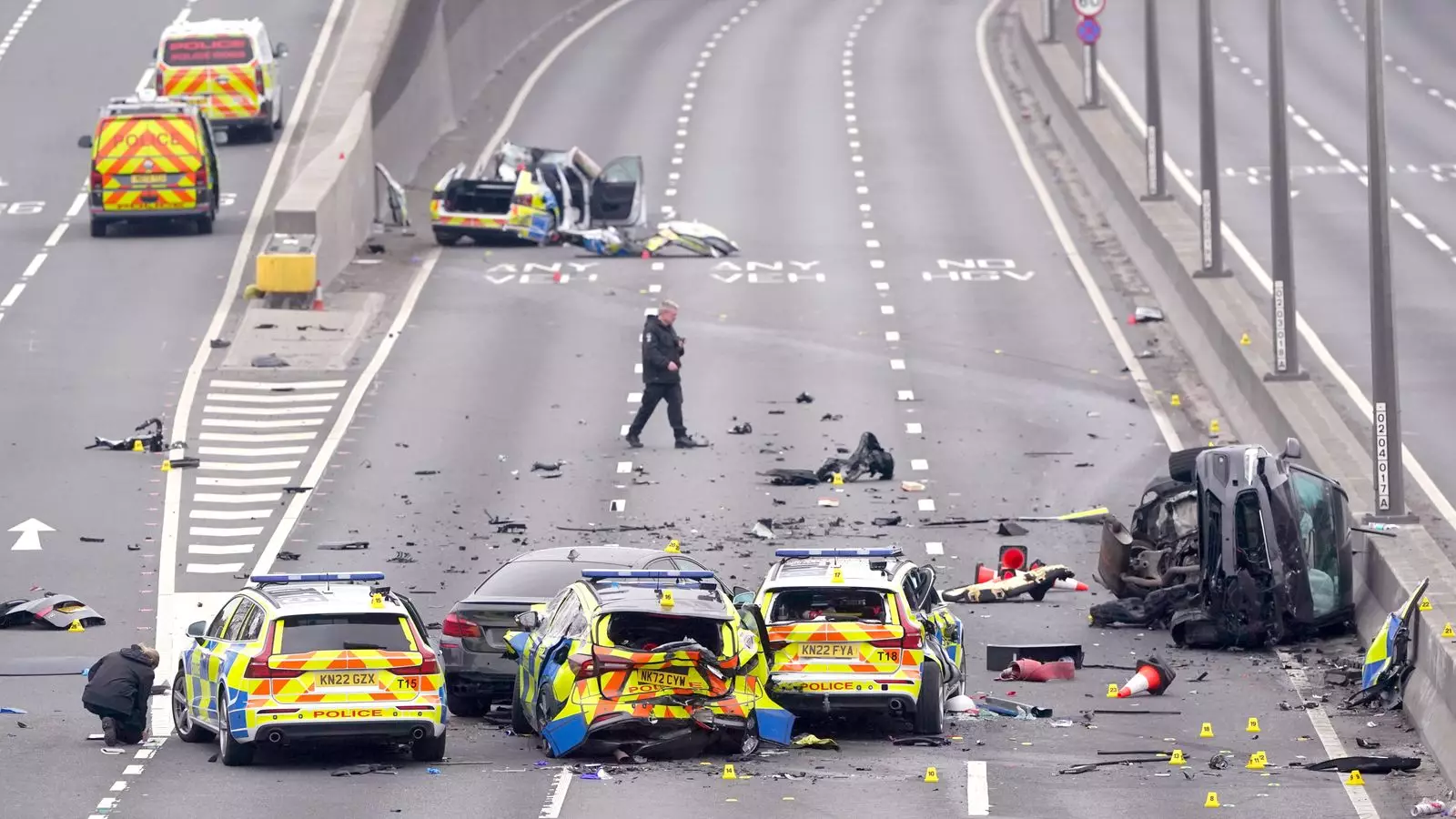In a world where impulsiveness often runs rampant among the youth, the case of Mazyar Azarbonyad, a 20-year-old personal trainer, epitomizes a shocking instance of reckless behavior on the road. On a seemingly innocent night out, the decision to drive not only jeopardized Azarbonyad’s own life but also inflicted injuries on seven police officers and plunged an entire community into chaos. The conviction of dangerous driving, combined with multiple offenses, reveals a broader issue regarding the youth’s relationship with responsibility and accountability. This incident occurred on the A1 in Tyneside, and it ultimately raises a critical question: how far will young drivers go before realizing the gravity of their decisions?
The Dangers of Pride and Evasion
The police initially stopped Azarbonyad for erratic driving in the Whickham area. Instead of complying, he accelerated in an arrogant maneuver indicative of a profound disregard for authority. This reckless choice not only showcased his impulsivity but also illustrated a troubling trend where young individuals often feel invulnerable, no matter the stakes. One can argue that our culture inadvertently romanticizes such displays of bravado, where the act of “not getting caught” becomes more alluring than the repercussions of reckless driving. In this case, the flashy BMW became a sinuous embodiment of Azarbonyad’s desire for validation and thrill, leading to catastrophic consequences.
What should have been a straightforward encounter with law enforcement turned into a chaotic cascade of events, leading to a multi-vehicle collision involving five police cars. The visuals from the scene integrated with the jaw-dropping narrative made it overwhelmingly clear: Azarbonyad’s ill-fated decision didn’t just affect him. It endangered numerous lives, disrupted public order, and imposed a heavy toll on the emergency services, whose responsibility lies in safeguarding the community, not navigating the results of mindless self-indulgence.
The Real Costs of Irresponsibility
The legal ramifications of Azarbonyad’s actions are severe and warranted. Admitting to dangerous driving and subsequently getting behind the wheel multiple times despite being granted bail—with explicit instructions to abstain from driving—is more than just foolish; it reveals a blatant arrogance masked as bravery. Prosecutor Simon Worthy criticized his behavior, stating that one would expect a measure of sensibility from someone in the defendant’s position. Yet Azarbonyad’s actions conveyed the opposite: a middle finger to the rules, a rejection of personal accountability, and a disregard for the welfare of others.
Far more troubling is the pattern of behavior illustrated in court as Azarbonyad admitted to driving without a license and insurance even after acknowledging the consequences of his prior actions. His defense attorney, Jack Lovell, insisted that his client felt remorseful and had acted out of panic after a stressful date gone awry. Although the psychological aspect of stress can evoke sympathy, using it as a defense only skirts the real issues—poor decision-making and lack of regard for societal rules.
Furthermore, the role of the woman accompanying Azarbonyad amplifies the conversation about shared responsibility. While she faces no action related to aiding dangerous driving, the mere implication that her presence led to his reckless choices cannot be ignored. This scenario raises questions about peer influence within the context of young adulthood and the necessity for individuals to assume greater accountability for the actions they reinforce in others.
The Era of Consequences: Bridging the Gap
As this incident heads toward sentencing, hopefully, it will serve as a stark warning for other young drivers who may think that the thrill of reckless driving is worth the risk. Law enforcement must continue to address this growing cultural epidemic, where the glamorization of car culture often overshadows the responsibility that comes with driving. The case of Mazyar Azarbonyad is more than just an isolated incident; it reflects the urgent need for a cultural shift where accountability overrules arrogance. The severity of his actions should resonate as a plea for caution, urging others to analyze their choices before taking the wheel.
Though Azarbonyad expressed regret during his empathetic defense, the possibility remains that this experience will lead him—not as a tragic figure but rather as a cautionary tale for his generation. As young individuals navigate this perilous phase of life, it becomes imperative to reconcile the drive for freedom with the weight of responsibility, ensuring that reckless pursuit of thrill doesn’t come crashing down in harm for oneself or others.


Leave a Reply